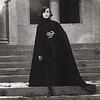Take a photo of a barcode or cover
inspiring
reflective
medium-paced
Plot or Character Driven:
Character
Strong character development:
Yes
Loveable characters:
Yes
Diverse cast of characters:
No
Flaws of characters a main focus:
Complicated
challenging
inspiring
reflective
fast-paced
dark
emotional
informative
reflective
sad
fast-paced
Plot or Character Driven:
Character
Strong character development:
Complicated
Loveable characters:
Yes
Diverse cast of characters:
Complicated
Flaws of characters a main focus:
No
challenging
emotional
hopeful
informative
inspiring
sad
fast-paced
Plot or Character Driven:
Character
Strong character development:
Yes
Loveable characters:
Complicated
Diverse cast of characters:
Yes
Flaws of characters a main focus:
Complicated
The book revolves around the life of its main character, Kim Jiyoung, a South Korean woman born in 1982. Through Jiyoung's experiences, the novel delves into the deeply ingrained gender inequality, societal pressures, and discrimination very common in South Korea. [b:Kim Jiyoung, Born 1982|46041199|Kim Jiyoung, Born 1982|Cho Nam-joo|https://i.gr-assets.com/images/S/compressed.photo.goodreads.com/books/1587128688l/46041199._SY75_.jpg|55506509] serves as a touching commentary on the feminist movement, raising awareness about gender-based prejudices and advocating for social change.
Throughout the book, the Author presents real-life statistics, reports, and data—and it baffles me how the footnotes are aimed to indicate that the challenges faced by the protagonist, Kim Jiyoung, a fictional character, were based on facts.
The book's realism lies not only in its portrayal of the protagonist but also in the supporting characters and the setting of this book. The author skillfully writes about the societal and cultural norms that keep the gender inequality continue, and it leaves no room for romanticizing or sugar-coating the challenges faced by women in modern Korean society.
[b:Kim Jiyoung, Born 1982|46041199|Kim Jiyoung, Born 1982|Cho Nam-joo|https://i.gr-assets.com/images/S/compressed.photo.goodreads.com/books/1587128688l/46041199._SY75_.jpg|55506509] is a perfect literary work that brilliantly tells its message about gender inequality through a captivating fictional narrative. This novel is a must-read.
Throughout the book, the Author presents real-life statistics, reports, and data—and it baffles me how the footnotes are aimed to indicate that the challenges faced by the protagonist, Kim Jiyoung, a fictional character, were based on facts.
The book's realism lies not only in its portrayal of the protagonist but also in the supporting characters and the setting of this book. The author skillfully writes about the societal and cultural norms that keep the gender inequality continue, and it leaves no room for romanticizing or sugar-coating the challenges faced by women in modern Korean society.
[b:Kim Jiyoung, Born 1982|46041199|Kim Jiyoung, Born 1982|Cho Nam-joo|https://i.gr-assets.com/images/S/compressed.photo.goodreads.com/books/1587128688l/46041199._SY75_.jpg|55506509] is a perfect literary work that brilliantly tells its message about gender inequality through a captivating fictional narrative. This novel is a must-read.
“What do you want from us? The dumb girls are too dumb, the smart girls are too smart, and the average girls are too unexceptional?”
Look, I appreciate the feminist message and the insight the book gives about South Korean society, but the story itself was disappointing imo. The writing style was pretty boring and straight to the point, so i felt like couldn't relate to any of the characters. Statistics were thrown into the middle of the story which made it feel like I was reading a research report. I was disappointed because of it and wouldn't recommend it.
dark
emotional
informative
reflective
sad
medium-paced
Plot or Character Driven:
Character
Strong character development:
Complicated
Loveable characters:
Complicated
Diverse cast of characters:
Yes
Flaws of characters a main focus:
No
This novella was as blunt as it was powerful—a tell-it-like-it-is account of the average life of a woman born in Korea in 1982. There’s nothing flowery about the writing, no attempt to soften the blow. Instead, Cho Nam-Joo delivers an almost clinical narration that walks you through the phases of Jiyoung’s life—childhood, adolescence, career, marriage, motherhood—and ultimately, her gradual mental unravelling.
What stayed with me was how matter-of-fact the tone was, almost unnervingly so. There’s no melodrama, just a relentless piling on of ordinary injustices that, together, paint a bleak yet familiar picture. From seeing mothers sacrifice education for their brothers, to classrooms where boys dominate leadership positions, to the snide and casually misogynistic comments thrown at job interviews, and finally to careers surrendered after childbirth—the book doesn’t reveal anything we haven’t heard before. But the way it’s presented, paired with stark statistics, forces you to stop and absorb the weight of these realities.
The brilliance of the book lies in its ordinariness. The experiences Cho lays out aren’t rare—they’re everyday, and that’s what makes it so confronting. There’s a sense of quiet rage woven into the simplicity of the language; it never needs to shout to make its point. Instead, it leaves you with that unsettling awareness of how ingrained these attitudes and behaviours truly are.
And then there’s the ending—a satirical, almost biting twist that feels both clever and chilling. Without giving anything away, it left me with the sense that we’d come full circle, and not in a way that inspires optimism.
Reading Kim Jiyoung, Born 1982 felt like staring into a mirror that reflects not just Korea, but much of the world. It’s honest, sharp, and unflinching—a novella that’s deceptively simple yet deeply thought-provoking. At times it reads almost like dystopian fiction, and yet, it isn’t. That’s the most unsettling part.
Moderate: Pregnancy
The good
It was a quick read, and enjoyable. I’m wondering if I should dare tackle the original when I still haven’t finished reading The Little Prince in Korean
Amazing, I loved it.
Unfortunately a lot of men need to read this book, And it is even sadder that a lot of women need to read this book as well to understand their rights and how they should be treated in society.
Unfortunately a lot of men need to read this book, And it is even sadder that a lot of women need to read this book as well to understand their rights and how they should be treated in society.
informative
reflective
sad
fast-paced






